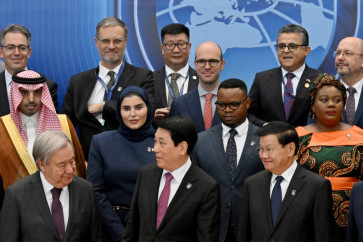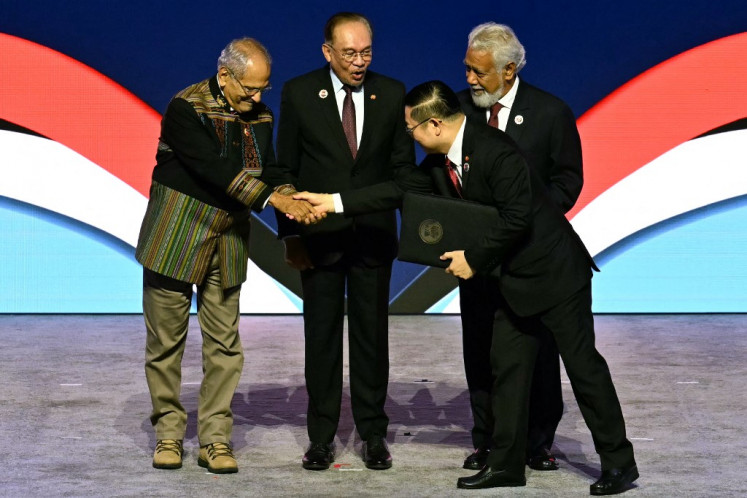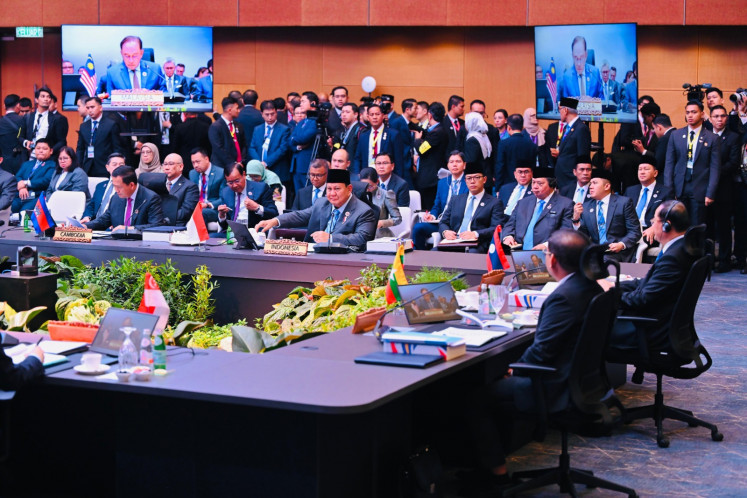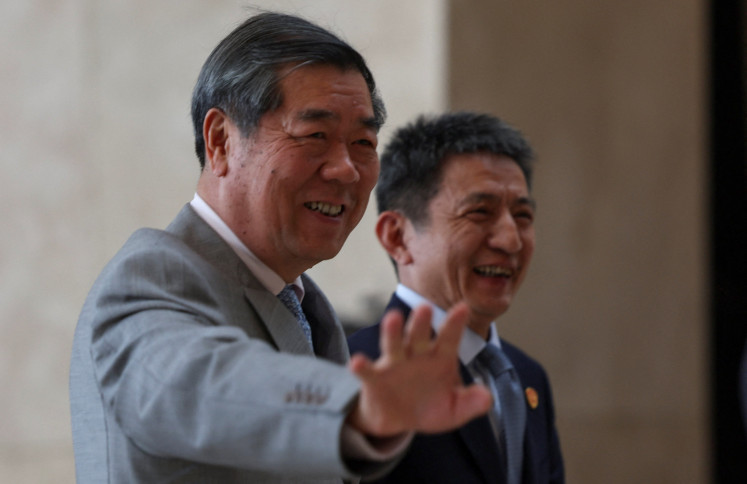Popular Reads
Top Results
Can't find what you're looking for?
View all search resultsPopular Reads
Top Results
Can't find what you're looking for?
View all search resultsAbbott's visit: A new page of Indonesia-Australia relations
The newly elected Australian Prime Minister Tony Abbott is expected to visit Indonesia on Sept
Change text size
Gift Premium Articles
to Anyone
T
he newly elected Australian Prime Minister Tony Abbott is expected to visit Indonesia on Sept. 30 ' his first overseas trip since winning the Australian premiership on Sept. 7. This choice indicates an important partnership in the offing.
In the past, Australian foreign policy always bypassed Indonesia in favor of the West. Indonesia was not a geopolitical strategic priority, as it was labeled a risky nation for investment with no significant prospects for reciprocal socio-economic benefits.
Australia was likely strongly guided by its western identity romanticism, despite its geographical position next to Asia. Total Australian investment in Indonesia in 2010 was only US$214.2 million while the tiny country of Singapore invested $5.1 billion.
Australia seemingly remained ignorant of the archipelago's remarkable democratic development and it's perception of Indonesia will likely remain unchanged despite Indonesia's great transformation. In the early stages of ' from a centralized to a decentralized system, from an authoritarian regime to democracy ' many international scholars predicted doom and gloom.
These predictions were based on negative gross domestic product (GDP) growth in 1998 of 13 to 14 percent. But Indonesia did not collapse. Instead, it showed remarkable resilience, bounced back and held a peaceful election in 2004, defying all odds. The World Bank noted: 'No country in recent history, let alone one the size of Indonesia, has ever suffered such a dramatic reversal of fortune'.
Despite various socio-economic and political challenges affecting the country during the last decade and a half, Indonesia remains focused on the path to democracy.
Although witnessing inconsistency from the west, exemplified by former US president George W. Bush when he declared war on terrorism and addressed all nations of the world to choose their option 'Are you with us, or against us?', Indonesia maintains its choice of democratization.
The west expected Indonesia to return to its old system of 'internal security acts' to be part of the global war against terror. Such counter-subversion laws are oppressive and are often used to remove freedom of expression.
This type of law is still implemented in Singapore, Malaysia and other neighboring countries. If it had been implemented, our road to democracy would have lead to the death of democracy.
In this new Indonesia, Abbott's administration is now capitalizing on the opportunities this new page of Indonesia-Australia relations offers:
First, Indonesia is dynamic, with a population of at least 250 million people, a current economic growth rate of 6-7 percent and GDP totaling around $1.12 trillion (2011 data). Every year its middle-class society increases by at least 8 million, which means the middle class has reached 130 million ' six times larger than Australia's population.
Now is the time for Australian businesses to take advantage of the opportunities resulting from our vibrant nation.
Second, a good relationship between Australia and Indonesia is extremely important, not just for the two countries, but for the broader regional context. By 2015, ASEAN will move to a single community of nations (AEC). Australia and ASEAN relations could be an emerging economic, social and political power to balance the domination of China, India and Japan in Asia. This is the momentum to ensure much closer engagement with Indonesia and ASEAN for Australia to increase its roles in global arena.
Third, Indonesia is also a good partner for Australia to engage with Muslim countries. The annual ninth World Islamic Economic Forum (WIEF) conference will be held in London in October, the first time to be held outside Asia, is expected to be attended by more than 2,000 delegates from about 85 countries. Australia could engage much closer with this great economic forum for long term political, economic and social benefits.
Fourth, Indonesia is also a good partner for Australia to engage with the 114 non-aligned movement (NAM) member countries. Founders of the NAM were Sukarno of Indonesia, Gamal Abdul Nasser of Egypt, Kwame Nkrumah of Ghana, Marshal Tito of Yugoslavia and Jawaharlal Nehru of India, all of whom committed themselves to comprehensive solutions on how to break away from dependence on any superpower. They voiced NAM neutrality and denounced all forms of colonialism across Asia and Africa.
In the course of its long history over five decades, however, NAM experienced hard times, which likely caused them to change their orientation to non-controversial issues, such as: population, environment, HIV/AIDS, environment, smuggling, drugs and non-documented migrants. Australia could pick one strategic issue such as illegal migrants, for example, to find its comprehensive solutions.
Finally, Abbott's visit to Indonesia will contribute to the economy, politics, society and security of the both nations.
The writer, a commissioner at the National Commission on Human Rights (Komnas HAM), is a UNESCO consultant for the Asia-Pacific Region.










